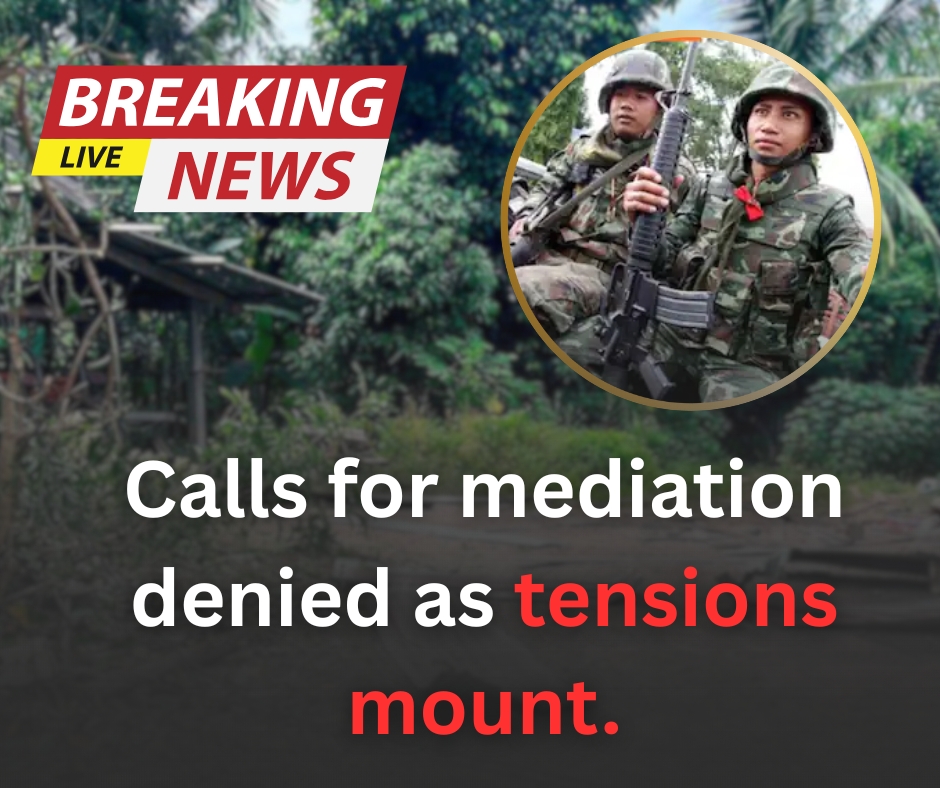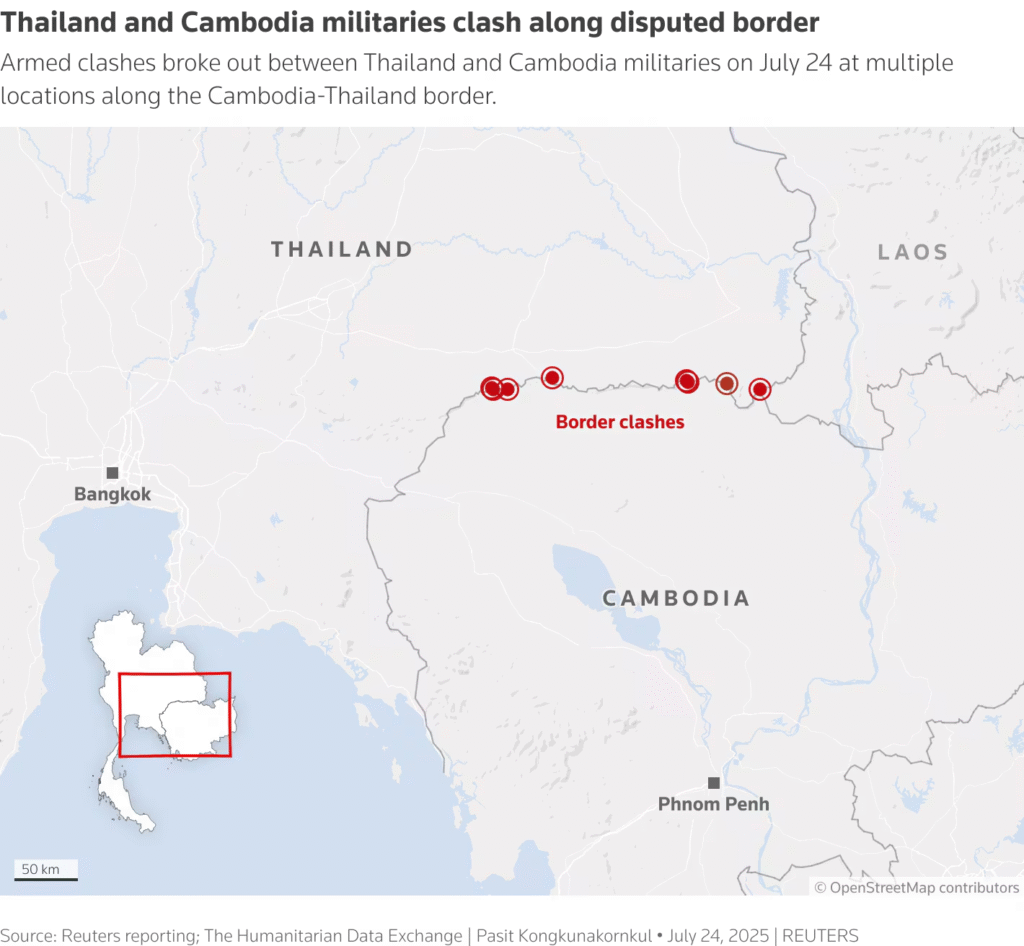
Tensions Escalate Over Disputed Border

Thailand has firmly rejected international efforts to mediate its ongoing border dispute with Cambodia, reiterating its stance that only bilateral talks—not third-party intervention—can resolve the crisis. This refusal has ignited debate within the region, especially as both governments continue to trade accusations over the initial cause of the conflict. Cambodia has openly blamed Thailand for triggering the hostilities, intensifying international scrutiny.
Background: The Disputed Frontier

The Thai-Cambodian border, particularly around the historically significant Preah Vihear temple area, has witnessed repeated clashes between military forces from both countries. These skirmishes have resulted in casualties, displacement, and growing humanitarian concerns for civilians near the border.
Recent confrontations have escalated from exchanges of small arms fire to the use of heavy artillery and even limited air strikes. The scale and intensity of the fighting have prompted urgent calls for international mediation from neighboring Southeast Asian nations and global actors like the United Nations Security Council.
Thailand’s Position: Mediation Rejected
- Prime Minister and Officials’ Stance: Thai leaders insist that the dispute must be managed through direct negotiations with Cambodia, emphasizing national sovereignty and control over the peace process.
- Reactions to Mediation Offers: The government has declined proposals for mediation from the US, China, and Malaysia (the latter as current ASEAN chair), arguing that external intervention might complicate or prolong the resolution.
Cambodia’s Response: Calls for Intervention
- International Appeals: Cambodian Prime Minister Hun Manet has appealed to the United Nations Security Council, accusing Thailand of “unprovoked military aggression” and urging the world to intervene.
- Allegations Over War Origins: Cambodian officials maintain that Thailand instigated the latest round of hostilities, a claim Thailand denies. This dispute over responsibility further complicates peacemaking efforts.
Humanitarian Impact
- Civilian Toll: The violence has forced thousands of residents on both sides of the border to flee their homes, resulting in overcrowded refugee camps and strained local resources.
- Casualties: Dozens of casualties, including civilian deaths and injuries, have been reported, with ongoing clashes raising fears of a wider regional conflict.
International Perspectives
- ASEAN and Global Stakeholders: Efforts by ASEAN and other international organizations to broker peace have so far been rebuffed by Thailand. Observers warn that continued refusal to accept mediation could undermine confidence in regional conflict-resolution mechanisms.
- Potential Consequences: Prolonged impasse may harm Thailand’s diplomatic relations and escalate regional instability, placing further stress on communities in the conflict zone.
Conclusion
Thailand’s steadfast rejection of international mediation amid accusations of initiating the border conflict has kept Southeast Asia—and the international community—on edge. As long as the dispute’s origins and solutions remain contested, the prospects for durable peace remain uncertain, with civilians bearing the brunt of the deadlock.
Thailand rejects international mediation in border dispute with Cambodia.
Thai-Cambodian border clashes escalate; calls for UN intervention.


